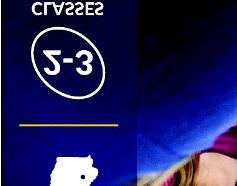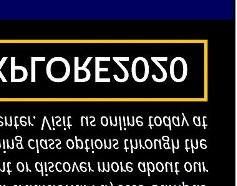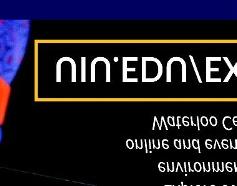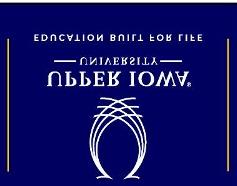
6 minute read
Records of your untaxed income
6 | Sunday, March 29, 2020 COLLEGE GUIDE PAYING FOR COLLEGE:
4 ways to help lower your education costs
Advertisement
BRANDPOINT T otal student loan debt has surpassed $1.5 trillion, with 4 in 10 students carrying over $30K in outstanding student loans. Getting accepted into college or graduate school is an exciting time for students and parents. As college continues to get more expensive, determining how you’ll fund your education is a big decision. Review these tips to help keep costs down as you navigate this exciting time in a student’s life.
Stay in state
Consider attending school near home. In-state tuition is much less expensive than attending school out of state. Plus, you’ll save on transportation—and even room and board if you live at home. Public universities are also generally more affordable than private universities.
Additionally, you might be able to save on tuition and related costs by taking classes at a local community college before school begins or during summer breaks. Be sure to confirm that the credits will transfer to the college or university of your choice prior to enrolling in these community classes.
Take advantage of financial aid
Some students and parents are able to finance college or graduate school with their savings, while others may qualify for federal student loans, grants, scholarships and work-study programs.
“A student loan is often the first loan product for a young borrower,” said Carrie Foran Sepulveda, manager of education lending at Navy Federal Credit Union. “It can have a significant impact on their post-school financial life, so it’s important to do your due diligence and explore all of your financial aid options.” If your student aid award or the federal student loan amount granted to you doesn’t cover all your college expenses, private student loans can help fill the SHUTTERSTOCK PHOTO


gap. For example, at Navy Federal Credit Union, members can apply for student loans with variable rates as low as 5.32% APR or fixed rates as low as 5.99% APR with automatic payments—both for 10- year terms, up to the school-certified cost of attendance.
Whether you choose federal or private student loans, make sure you fully grasp the loan’s terms, conditions, and repayment requirements. Gain college credits in high school
If your high school offers Advanced Placement (AP) programs, you may be able to receive college credits at no cost or test out of some requirements—saving money that would have been spent taking the class during college. Check with the school for their rules on granting AP credits. Earn money while in school
Apply for on-campus jobs if you have work study granted to you by the school, or look for part-time jobs off-campus to earn extra cash. During school breaks, consider finding a job with full-time hours, but on a short-term basis, to make the most of your time off.







Upper Iowa University helps students achieve accessible higher education S ince its inception in 1857, Upper Iowa University’s unwavering commitment to accessible higher edu cation and lifelong learningensures that current and future UIU students are provided with the skills they need to be successful in the classroom, career and life. A private, nonprofit university, UIU provides undergraduate and graduate degree programs to about 5,200 students worldwide.
Students get a traditional college experience of excellent education, tradition and innovation within a comfortable and welcoming campus environment in Fayette. However, as a UIU education is an Education Built for Life, the University also has 21 locations across the United States—as well as in Hong Kong. To further inspire success and empower lives, UIU provides evening classes, expert faculty, and supportive staff that students need to advance their career while still tending to family, job and other day-today responsibilities. UIU is also a recognized leader in online and self-paced education, so students never need to go far for an exceptional education.
Students have more than 40 majors to choose from, and all utilize a unique, flexible course schedule. Each academic year consists of five 8-week sessions and one accelerated 6-week summer session, so UIU students typically take less classes at a time. Many students blend their degree plan by taking both face-to-face and online courses. Other students get a jump on completion by easily transferring in up to 90 undergraduate credits or 12 graduate credits from other schools. Credits may also be earned through an individual’s work experience via an experiential learning portfolio or various college examinations.
With a universitywide 13:1 student-to-faculty ratio, the UIU experience helps students be come confident in their abilities, challenges them to achieve their educational and career goals, connects them with profession als within their desired field, and inspires them to reach their full potential. According to the 2018 UIU graduation survey, 94 per cent of graduates are employed or continuing their education shortly after commencement.
UIU has competitive tuition and highly skilled professionals to help students understand and make the most of financial aid. In addition, most students are eligible for endowed or institutional scholarships to further lower the cost of their UIU education. Students who are completing a twoyear degree at another college are encouraged to inquire about UIU’s new transfer tuition scholarship program; eligible students earn a scholarship of up to $19,750. In addition, UIU’s Corporate Advantage Program provides tuition grants and other benefits to employees of participating companies. Military and international support
UIU offers a wide variety of educational opportunities tai lored to fit the dynamic lifestyle of today’s military personnel and their families. The University is a proud participating institution in the Principles of Excellence and Yellow Ribbon programs,hav ing been repeatedly named a top Military-Friendly University by Military Advanced Education & Transition and Viqtory Media.
Located at Fayette Campus, the UIU Military and Veterans Service Center (MVSC) provides a relaxing physical space for veterans and military-affiliated students to study and connect with other students. Assistance is available to students and the University’s total military family who need help navigating all of UIU’s resources. In addition, Upper Iowa is a member of the PAVE (Peer Advisors for Veteran Education) network. Headquartered at University of Michigan Medical School, PAVE is a peer support program that connects incoming student Please see UIU, Page 8 Sunday, March 29, 2020 | 7


















